LASSCO Archive
2932 items found
Page 35 of 245
-
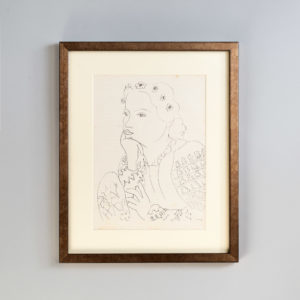
Divagations III, by Henri Matisse, Verve Vol. 1 / No. 1.
Divagations III, by Henri Matisse, Verve Vol. 1 / No. 1.
The Verve Review was a purposefully luxurious. It ran from 1937 to 1960, but with only 38 editions available, due to the high degree of design and editorial work dedicated to each issue. Each edition contained unique lithographic prints, commissioned by the editor, and each cover a double-page lithograph elaborated by one of the artists contained within. It was the brainchild of its editor Stratis Eleftheriades, a Greek National who moved to Paris in the early thirties to take part in the growing Modernist movement, writing under the name of Teriade. -
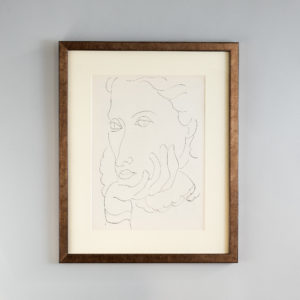
Divagations II, by Henri Matisse, Verve Vol. 1 / No. 1.
Divagations II, by Henri Matisse, Verve Vol. 1 / No. 1.
The Verve Review was a purposefully luxurious. It ran from 1937 to 1960, but with only 38 editions available, due to the high degree of design and editorial work dedicated to each issue. Each edition contained unique lithographic prints, commissioned by the editor, and each cover a double-page lithograph elaborated by one of the artists contained within. It was the brainchild of its editor Stratis Eleftheriades, a Greek National who moved to Paris in the early thirties to take part in the growing Modernist movement, writing under the name of Teriade. -
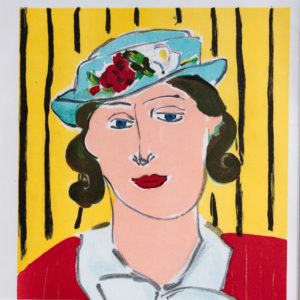
Femme au Chapeau by Henri Matisse, Verve Vol 2 / No. 5-6.
Femme au Chapeau by Henri Matisse, Verve Vol 2 / No. 5-6.
The Verve Review was a purposefully luxurious. It ran from 1937 to 1960, but with only 38 editions available, due to the high degree of design and editorial work dedicated to each issue. Each edition contained unique lithographic prints, commissioned by the editor, and each cover a double-page lithograph elaborated by one of the artists contained within. It was the brainchild of its editor Stratis Eleftheriades, a Greek National who moved to Paris in the early thirties to take part in the growing Modernist movement, writing under the name of Teriade. -
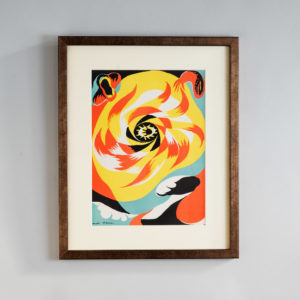
The Sun by André Masson, Verve Vol. 1 / No. 2.
The Sun by André Masson, Verve Vol. 1 / No. 2.
The Verve Review was a purposefully luxurious. It ran from 1937 to 1960, but with only 38 editions available, due to the high degree of design and editorial work dedicated to each issue. Each edition contained unique lithographic prints, commissioned by the editor, and each cover a double-page lithograph elaborated by one of the artists contained within. It was the brainchild of its editor Stratis Eleftheriades, a Greek National who moved to Paris in the early thirties to take part in the growing Modernist movement, writing under the name of Teriade. -
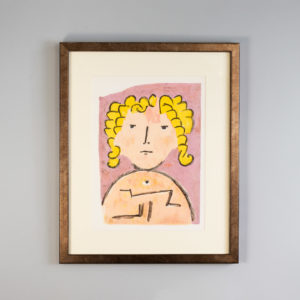
Head of a Girl by Paul Klee, Verve Vol 2 / No. 5-6.
Head of a Girl by Paul Klee, Verve Vol 2 / No. 5-6.
The Verve Review was a purposefully luxurious. It ran from 1937 to 1960, but with only 38 editions available, due to the high degree of design and editorial work dedicated to each issue. Each edition contained unique lithographic prints, commissioned by the editor, and each cover a double-page lithograph elaborated by one of the artists contained within. It was the brainchild of its editor Stratis Eleftheriades, a Greek National who moved to Paris in the early thirties to take part in the growing Modernist movement, writing under the name of Teriade. -
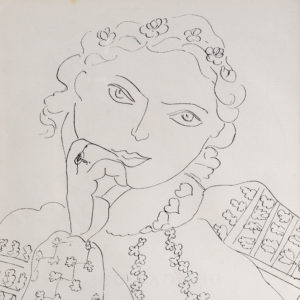
Divagations I, by Henri Matisse, Verve Vol. 1 / No. 1.
Divagations I, by Henri Matisse, Verve Vol. 1 / No. 1.
The Verve Review was a purposefully luxurious. It ran from 1937 to 1960, but with only 38 editions available, due to the high degree of design and editorial work dedicated to each issue. Each edition contained unique lithographic prints, commissioned by the editor, and each cover a double-page lithograph elaborated by one of the artists contained within. It was the brainchild of its editor Stratis Eleftheriades, a Greek National who moved to Paris in the early thirties to take part in the growing Modernist movement, writing under the name of Teriade. -
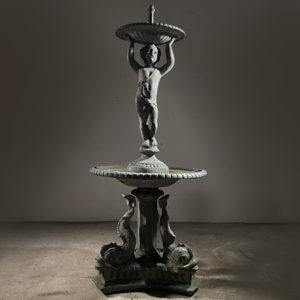
An English figural lead two-tier fountain
An English figural lead two-tier fountain
with two graduated bowls, the upper with a spout held aloft by a standing putto, the lower raised of a trio of dolphins around a cylindrical post and on a triform base -
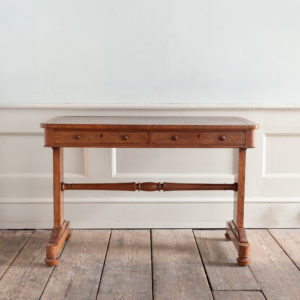
Nineteenth century satinwood writing table
Nineteenth century satinwood writing table
the attractively worn leather skiver with traces of gilt to the tooled border. -
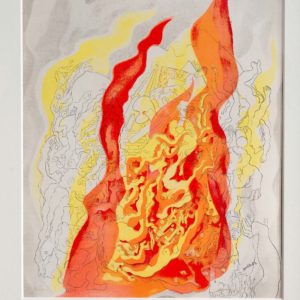
The Four Elements, Fire by Abraham Rattner, Verve Vol. 1 / No. 1.
The Four Elements, Fire by Abraham Rattner, Verve Vol. 1 / No. 1.
The Verve Review was a purposefully luxurious. It ran from 1937 to 1960, but with only 38 editions available, due to the high degree of design and editorial work dedicated to each issue. Each edition contained unique lithographic prints, commissioned by the editor, and each cover a double-page lithograph elaborated by one of the artists contained within. It was the brainchild of its editor Stratis Eleftheriades, a Greek National who moved to Paris in the early thirties to take part in the growing Modernist movement, writing under the name of Teriade. -
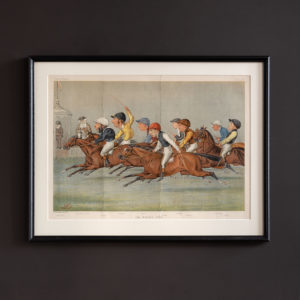
The Winning Post
The Winning Post
A framed double-page chromolithograph for Vanity Fair by LIB, Liberio Presperi, showing a field of champion jockeys of the late 19th century. Pictured on horseback are the Derby Winners John Osborne Jr (1869), Fred Webb (1873) Tom Cannon (1882), George Barrett (1891), and Fred Barrett (1888). 5 time Derby winner John ‘Jack’ Watts is also pictured alongside Oaks and St Leger William Robinson (1888) and later Ascot gold Cup winner, Fred Rickaby (1901). -
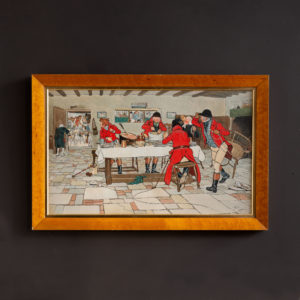
The Hunt Breakfast at the Three Pigeons
The Hunt Breakfast at the Three Pigeons
By Cecil Aldin, 1899, original chromolithograph in birds eye maple frame. ‘The Hunt Breakfast at the Three Pigeons’, the first in Aldin’s Fallowfield Hunt set of 1899, shows a body of huntsman roused from their rustic breakfast at a country Inn by the sound of the huntsmans horn. -
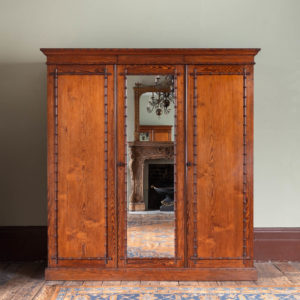
Howard & Sons Oregon Pine wardrobe
Howard & Sons Oregon Pine wardrobe
the cornice containing extending clothes airer (assumed?) above bamboo moulded doors, the central one with mirror plate (replaced), the interior containing clothes sides and drawers, with single hanging compartment.
